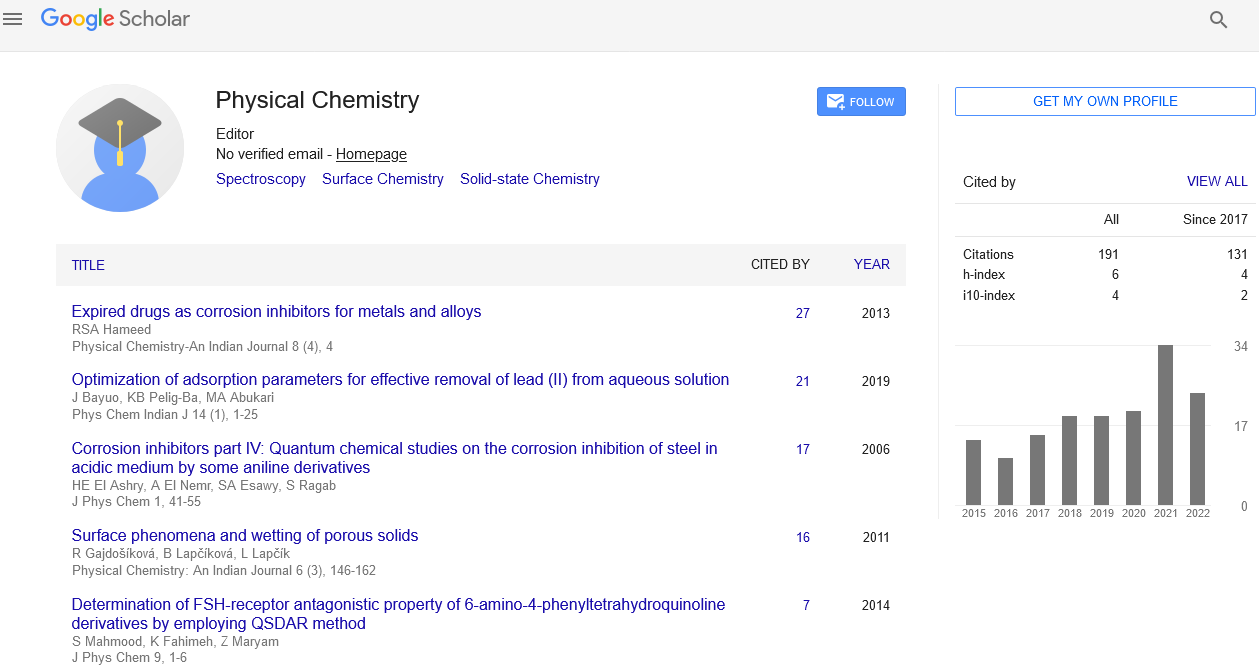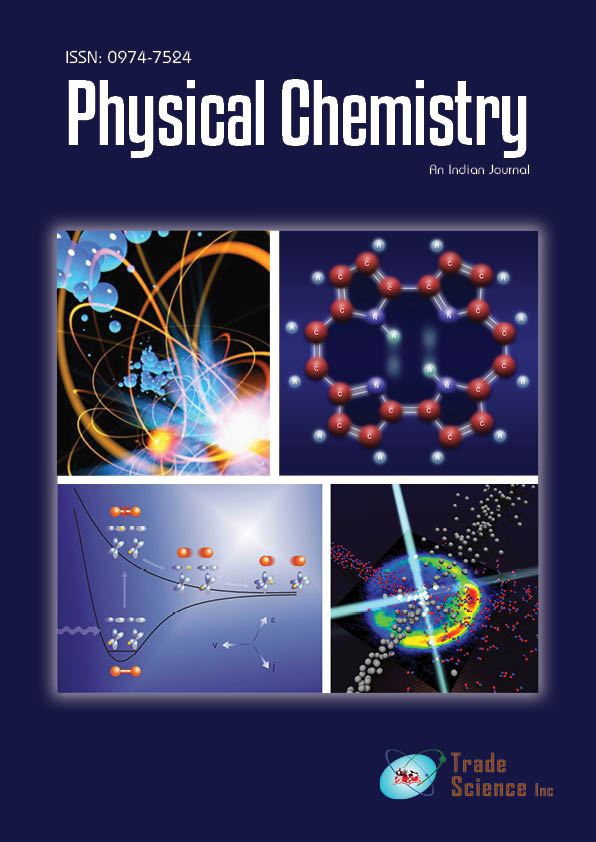Abstract
Photoinduced intermolecular electron transfer from aromatic amines to 9-methylanthracene in Sodium dodecyl sulfate micellar solutions
Author(s): S.R.Patil*, M.S.Khot, G.B.KolekarPhotoinduced intermolecular electron transfer (PET) interaction between 9-Methylanthracene (a hole donor) and aromatic amine (hole acceptor) has been investigated in anionic sodium dodecyl sulfate (SDS) micellar solution using Steady State (SS) fluorescence quenching measurement and the results are compared with those observed in the homogeneous ethanol solutions. The intensity of the emission bands of 9- methylanthracene (9-MA) is quenched in presence ofN,N-Dimethyl aniline (DMA) andN,N-Diethyl aniline (DEA) by electron transferwithout formation of an exciplex. Steady State fluorescence quenching of the 9-MA by the amine quenchers exhibits positive deviation fromlinear Stern-Volmer relationship due to the localized high quencher concentrations at the micellar Stern layer. The electron donor aniline quenches the fluorescence of 9-MAwithout formation of exciplex. The bimolecular quenching constants (kq SS) observed inmicellar solution are seen to be much smaller than those estimated in the polar homogeneous ethanol solution, indicating that the electron transfer (ET) in the micellar media is inherently inefficient. The PET occurring in present system is confirmed by electrochemical studies byCyclicVoltammetry and used further to estimate free energy changes in the different environment. Marcus outer sphere ET theory is used to calculate the solvent reorganization energy (ï¬s) and the free energy (ï„G) which enabled to propose suitable mechanism for PET at the surface of themicelle.

